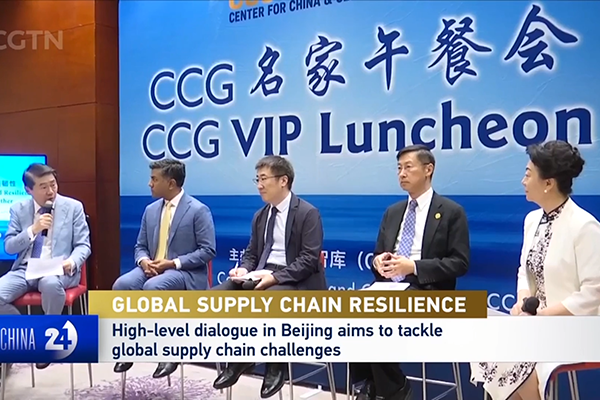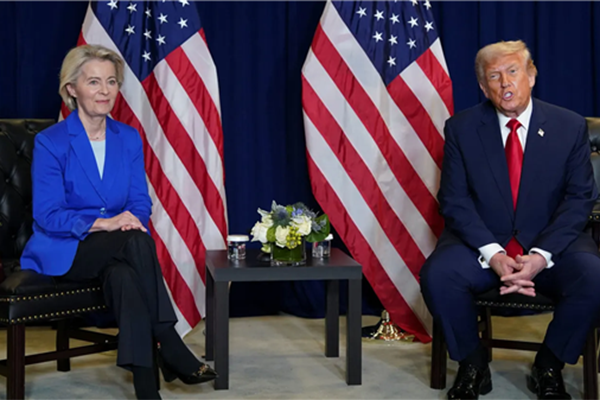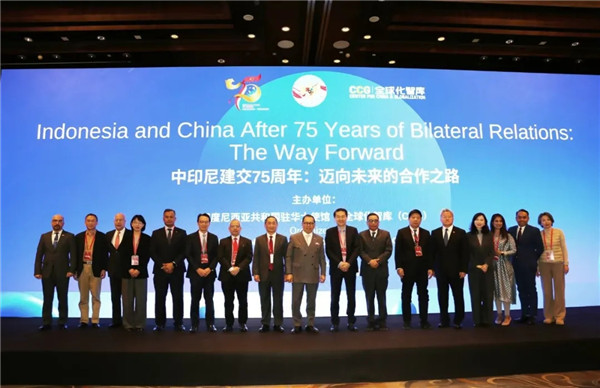[China Focus] As Globalization Reaches a New Crossroads, Where Will It Head?
June 24 , 2022Globalization is not a zero-sum game, instead, it could be a win-win cooperation for all.
Has globalization come to an end? That is the question lingering on many people’s minds. At present, the world is facing major changes unprecedented in a century. The haze of COVID-19 is not yet clear, while the world economy is suffering from destabilizing shocks, and trade protectionism and unilateralism are continuously interfering in the existing international order. Coupled with a series of impacts triggered by the Ukraine crisis, many problems are still up in the air.
Globalization faces multifaceted challenges
The COVID-19 pandemic has given globalization an unexpected shot in the arm, and signs of de-globalization are emerging. Meanwhile, many Western countries are experiencing severe inflation and high unemployment rates. The international situation is increasingly characterized by instability, uncertainty and insecurity, casting a shadow over the world economic recovery.
Pakistani ambassador to China, Moin ul Haque noted that the world is facing a formidable crisis. “It is a test for the entire human race of what we have achieved so far and indeed a test of our global systems also,” the ambassador said.
Permanent Representative of African Union to China Rahamtalla M. Osman also stated that the COVID-19 pandemic is a global event that caused a severe depression not seen since the Second World War. The economic costs are deadly.
Under the pandemic, the mobility of people and resources has been hampered, which has brought considerable difficulties for economic and cultural exchanges.
The Ambassadors’ Roundtable at the 8th China and Globalization Forum held by the Center for China & Globalization on Jun. 20, 2022. (Photo/CCG)
In addition, the Russia-Ukraine conflict and its impact on food and energy security issues cannot be ignored.
UAE Ambassador to China, Ali Obaid Al Dhaheri, said that “the challenge of the lingering pandemic is exacerbated by regional conflicts which are contributing to the destabilization of our global community. Food security and energy security are now of serious concern, especially in vulnerable less-developed regions. This will undoubtedly have a cascading effect of spreading international instability.”
Cui Hongjian, director of the Department of European Studies at the China Institute of International Studies (CIIS), pointed out that in addition to the pandemic, there is a growing tendency of anti-globalization and de-globalization because of fragmented cooperation and political uncertainty.
The United States, previously a major promoter and beneficiary of globalization after the Second World War, has now become an obstructor of globalization with the “America First” mindset. Together with its Western allies, the US is seeking to decouple from China in economy and supply chain and establish a new circle of economy and trade which is dominated by Washington.
Huang Renwei, executive director of Fudan Institute of Belt and Road & Global Governance, and former vice president of Shanghai Academy of Social Sciences, said that the deepening rift between developed and developing markets would be a huge threat to globalization.
The Covid-19 pandemic, regional war and conflict, rising inflation, climate change, food crisis and geopolitical competition… all of these pressing issues need to be addressed. China, as the largest developing country, will undoubtedly play an indispensable role.
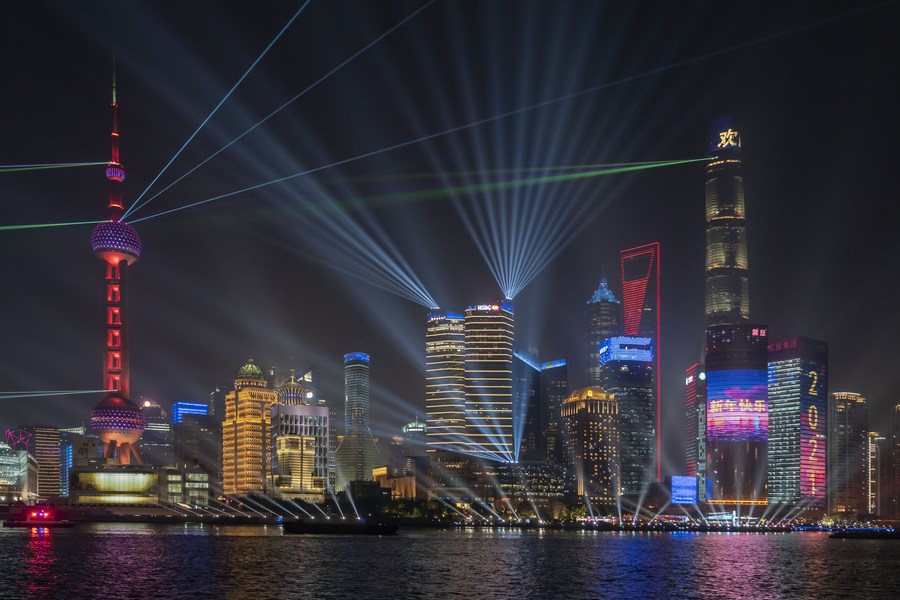 Photo taken on Jan. 2, 2021 shows the light show at the Lujiazui area in east China’s Shanghai. (Photo/Xinhua)
Photo taken on Jan. 2, 2021 shows the light show at the Lujiazui area in east China’s Shanghai. (Photo/Xinhua)
Where will globalization head to in the future?
Against this backdrop of great change and uncertainty, many people are pessimistic about the future and wonder whether globalization may have come to an end or will go into reverse. Where will globalization head? And what role will China play in the process?
Lin Songtian, president of the Chinese People’s Association for Friendship with Foreign Countries (CPAFFC) and former Chinese Ambassador to South Africa, expressed his confidence of globalization. He stressed that “Globalization is an inevitable trend of world economic development and a natural choice for countries to achieve development and prosperity. It is not charity or favor given by some countries to others, still less can it be reversed or changed by any person’s will.”
Many experts and scholars also have positive views on the further development of globalization. Da Wei, professor and director of Center for International Security and Strategy of Tsinghua University, noted that globalization is an objectively ongoing process, driven by the flow of capital, technology and people, as well as global issues. Under such circumstances, globalization will continue to evolve, but will not stop.
In the midst of headwinds and undercurrents of deglobalization today, the unity of international community becomes more important than ever. China has been committed to promoting inclusive and sustainable globalization and will play an important role in the future.
“China’s branding as the ‘factory of the world’ often hides its rising prominence in services trade. China is the world’s largest trading nation, a position it gained more than a decade ago”, commented Ibrahim Chowdhury, World Bank Senior Economist for China.
China will make more contributions to globalization with Chinese wisdom and solutions in the rest time of the 21st century.
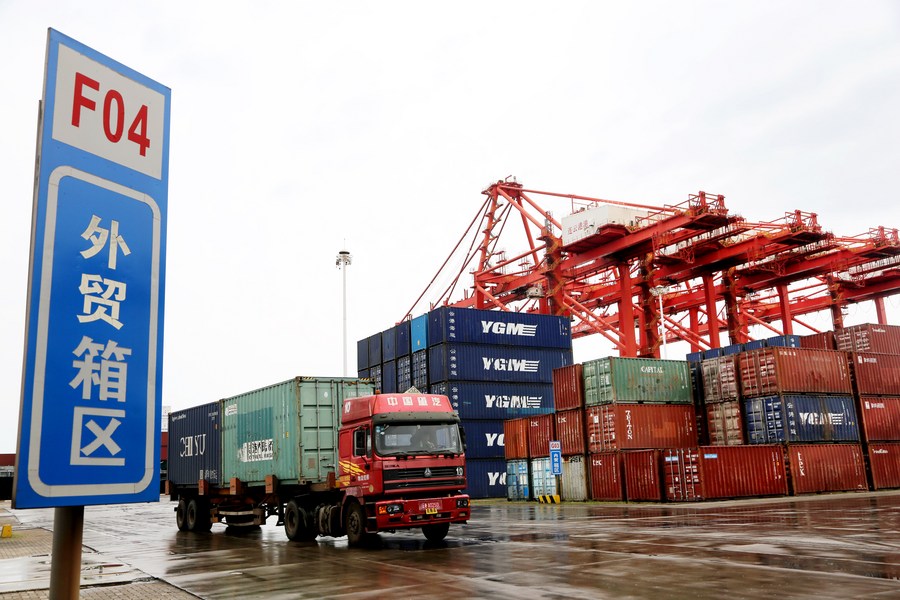 A truck transports containers at a container terminal in Lianyungang, east China’s Jiangsu Province, Jul. 13, 2021. (Photo/Xinhua)
A truck transports containers at a container terminal in Lianyungang, east China’s Jiangsu Province, Jul. 13, 2021. (Photo/Xinhua)
Tu Xinquan, dean of the China Institute for WTO Studies, University of International Business and Economics (UIBE) believes that the future of globalization depends mainly on China. “Whether China can make greater contributions to globalization, trade and investment liberalization with concrete actions is the key to keep sustainable development of globalization. China is probably the only country making incremental contributions to globalization so far, no matter in terms of market size, opening space or prospects for future development,” he said.
Siddharth Chatterjee, UN Resident Coordinator in China, said that the UN will continue to work together with China. Both sides will not only advance the cooperation framework within China, but also share China’s precious experiences of development with the rest of the world.
China is not only a participant and beneficiary of globalization, but also a contributor and supporter. Today, when globalization stands at a crossroads, China, as the world’s second-largest economy and the largest trading nation, will undertake its own responsibilities, adhere to the principle of opening up to the rest of the world, and promote international cooperation including the Belt and Road Initiative, BRICS cooperation, and RCEP, etc. China believes that the fruits of global development should be shared by all.
China has expressed many times that it strongly supports globalization, not for seeking hegemony, but for boosting common prosperity. Globalization is not a zero-sum game, instead, it could be a win-win cooperation for all. China’s proposal of building a community with a shared future for mankind and achieving common development for all human beings has been warmly welcomed by many countries and as will become the trend of the times and history.


